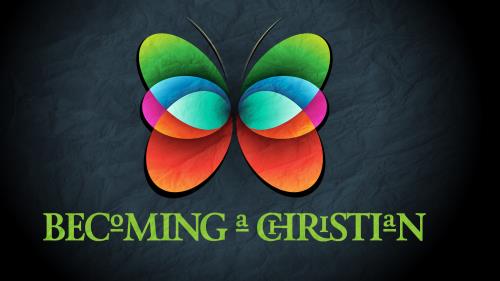-
John 2.1-11 What To Do When The Wine Runs Out? Series
Contributed by Bobby Bodenhamer on Nov 28, 2017 (message contributor)
Summary: Just as the wine ran out at the wedding feast, so can our wine run out. Sometimes we experience "dry times" in our life and ministry. When the wine runs out, let's run to Jesus for He is the one Who turns the water into wine.
WHAT DO YOU DO WHEN THE WINE RUNS OUT?
John 2:1-11
The first miracle of our Lord took place in a town called, Cana of Galilee. The event was a wedding. Cana was a inconspicuous little town that lay outside of Nazareth. Cana had no social prominence in its day! In fact, biblical scholars took 1800 years before they could figure out just where this town was.
Mary the mother of Jesus, and Jesus and his disciples had all been invited to the wedding. Because social standing was so important in the Jewish culture of this time, we assume that this was a “peasant” wedding. Otherwise, Mary, being a peasant, would have never been invited.
It’s interesting to note: Jesus ministry, like his birth, began in a small, unimportant town, to common every day folks.
Weddings were, and are, a big deal in the Jewish culture. There is a certain protocol that was to be followed. If the bride were a virgin, the wedding occurred on Wednesday. If the bride a widow, the wedding came on Thursday.
The wedding ceremony would take place late in the evening after a time of feasting. The father of the bride would take his daughter on his arm, and with the wedding party in tow, would parade through the streets of the village so that everyone could come out and congratulate the bride. Finally the wedding party would arrive at the home of the groom. The wedding actually took place in the front door of the grooms house. It was no short ceremony….no the festivities lasted for days. It was a time of great celebration.
After the wedding ceremony the bride and groom walked through the streets accompanied by flaming torches. Their attendants walked with them keeping a canopy over their heads. The wedding party always took the longest route through the village so that as many people as possible could wish them well.
There was no such thing as a honeymoon! No, the couple kept open house for a week. They were treated like royalty. They dressed in fancy clothes and many times actually wore crowns on their heads. Whatever desire they spoke for…they received. Their word was law!
The grooms family was expected to provide all the refreshments for this week of festivities.
That’s where we pick up our scripture: Read John 2:1-11
Suddenly the host discovers that they are running out of wine. They had more guest than they anticipated. It would have been improper for the culture of this time to not have wine. Jews did not get drunk at these celebrations—drunkenness was considered a disgrace. But the host could have actually been sued for a breach of hospitality to his guest.
Evidently they did not have the money to go and purchase more wine. We can assume that Jesus’ mother was a close friend of the groom’s mother and she heard about the problem. Who knows, if these families were close friends it is highly possible that Jesus was a close friend of the groom himself.
Jesus’ mother comes to Jesus and says, “Son, we’ve got a problem here, and we need your help. The groom’s family is running out of wine.”
The fact that Mary came to Jesus with such a problem is a reminder that Jesus is concerned with the everyday things in life that we face.
Jesus answers his mother in what seems like a harsh way. He was not being harsh, he was just simply already focusing on his life and ministry, and had began to detach himself from his family.
John calls this first miracle a sign. Signs are usually placed in places to give us information, or point us in the direction. The miracles of Christ were always meant to reveal to us the glory of God, and point us to who He truly is.
Let’s take a look at what this first sign means for us today.
Notice that first of all…
I. This sign informs us that…The wine can run out.
A. Mary realizes the seriousness of the issue. You can hear it in her words… “They have no wine.”
1. To the Jewish people wine symbolized joy. The Jewish rabbis had a saying, ‘Without wine there is no joy.” At the wedding in Cana their joy had run out!
2. It is a reminder of the emptiness of our life without Christ.
3. This statement by the mother of Jesus goes beyond liquid refreshment at a wedding. It is symbolic of our lives. It is a scary thing when the “wine runs out.”
Illus. If I were to say to you the name, “Earnest Hemmingway” today. You might not know in detail who he was, but most of us would know that he was a famous writer. Hemmingway was a great storyteller. Many of his books are considered to be classics. The Old Man and The Sea, a story he wrote while living in Cuba reveal his genius. He was a Nobel Prize recipient. From the very early years of his life he was a person who went for it all. He was a newspaper reporter and an ambulance driver during WWI. He was involved in the Spanish Civil War. He had friendships that ranged from bullfighters to authors. Whatever he did, he went for it all, he was drinking long at the natural wine of life. But there came a day when those wines ran out. Carlos Baker records it in the biography of Hemmingway like this,

 Sermon Central
Sermon Central



